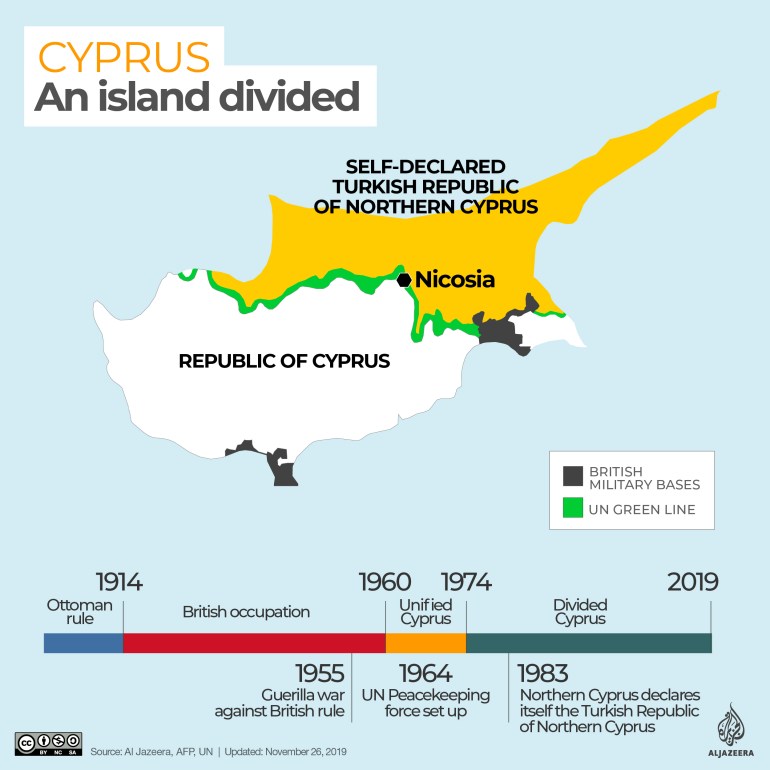Cyprus settlement talks found little common ground: UN chief

The United Nations says there was not enough common ground to resume negotiations on war-divided Cyprus, after a three-day summit attempting to break a four-year impasse in peace negotiations.
Diplomats had been trying to make headway to end a decades-old conflict between rival Greek and Turkish Cypriots which destabilises the eastern Mediterranean and is a key source of tension between NATO allies Greece and Turkey.
Keep reading
list of 4 itemsCyprus rivals seek ‘common ground’ at Geneva talks
Can new Cyprus talks find an unlikely breakthrough?
UN chief Guterres ‘realistic’ as Cyprus talks open in Geneva
“The truth is that in the end of our efforts, we have not yet found enough common ground to allow for the resumption of formal negotiations in relation to the settlement of the Cyprus problem,” UN Secretary-General Antonio Guterres told a press conference in Geneva.
He said the United Nations would make a fresh attempt in “probably two or three months”.

Turkish Cypriot leader Ersin Tatar said there was no point in holding formal talks on Cyprus without recognition of his state, and that he would not turn back from the two-state proposal his delegation made on Wednesday.
Greek Cypriot leader Nicos Anastasiades said the Turkish proposals for a two-state solution were a clear violation of UN resolutions over the island and would never be accepted.
His government nominally represents the whole island, both internationally and in the European Union.
“Unfortunately today we are not able to reach the agreements that we would wish to reach, but we are not going to give up,” Guterres said.
The summit at the UN European headquarters was attended by the foreign ministers of Britain, Greece and Turkey which are guarantor powers under the island’s independence treaty.
Britain welcomed the commitment by all sides to meet again in the near future, foreign minister Dominic Raab said on Twitter. “The UK will continue to work with all parties to seek a fair and lasting settlement,” he said.
Cyprus was split between a Greek Cypriot south and a Turkish Cypriot north in 1974.
Previous talks on reunification under a federal umbrella, as called for in UN resolutions, have failed.
Turkey and the Turkish Cypriot leadership have dismissed further discussions about a federation-based accord as a “waste of time” because nearly five decades of negotiations on that model have gone nowhere.
Greece says the two-state proposal would legitimise the country’s partition.
The breakaway Turkish Cypriot enclave set up after a Turkish military invasion is recognised only by Ankara, while the Greek Cypriot administration is internationally recognised as the government of Cyprus.
That invasion came after a coup that sought to join the island to Greece.